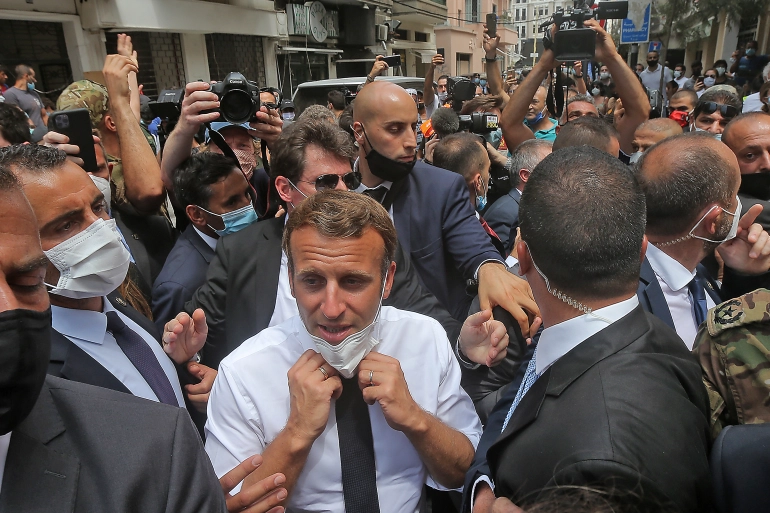
Major Lebanese factions agreed on 31 August 2020 to appoint Mustafa Adib, a former ambassador to Germany, as prime minister just hours before French President Emmanuel Macron reached the country on his second visit. In doing so, they hoped to hold Macron to his commitment to mobilise international aid for Lebanon following the explosion at the Beirut port on 4 August that killed and injured thousands and inflicted an estimated $6.6–8.1 billion in damage to the city. Coming in the midst of an acute economic and financial crisis, the port blast—caused by the detonation of an enormous quantity of ammonium nitrate that had languished at the port since 2013—laid bare the mismanagement and corruption of the Lebanese ruling class. Sparking a burst of popular rage, the explosion gave new momentum to the popular protest movement that had begun in October 2019 and prompted the resignation of the government.
France has taken the lead in coordinating the international response, urging the formation of an independent, technocratic government and hosting a donors’ conference, where assistance to Lebanon was made conditional on anti-corruption measures and administrative and financial reforms. France’s role can be explained by three factors. First, France has historical and cultural ties to Lebanon and this moment offers it the opportunity to regain influence in the region it has lost to other international and regional actors. Second, Paris is the only player with sufficient economic heft that is able to reach out and coordinate with all local and regional forces, including Hezbollah, whose political wing it has not designated a terrorist organisation. Third, the coming US election has left a diplomatic opening for France, as the Trump administration focuses on more pressing issues. France may hope to leverage its diplomatic achievements now into greater influence with the United States in the future, especially in the event of a Biden victory in November.
Nevertheless, France is likely to face challenges in getting all domestic and regional players on board for its vision. Domestically, it will be difficult to institute reforms with the same political class whose inability to manage or resolve crises over two decades brought the country to the brink of economic collapse. Hezbollah in particular will be difficult to move thanks to its arms and its broad Shiite base, despite growing criticisms from unexpected quarters. In addition, France will need to contain US-Iranian tensions in Lebanon and neither power will take kindly to rules imposed on them by France. Other regional powers like the United Arab Emirates and Turkey are looking to expand their role and influence. While Abu Dhabi may be more predisposed to French leadership given their alliance in Libya, Ankara, which is on the opposite side of France in Libya, may try to weaken Paris by building alliances in Lebanon in order to gain a firmer foothold in the eastern Mediterranean.
Given these constraints, France is focusing on the formation of a technocratic government that can institute the economic reforms needed for recovery. For Lebanese elites, this is not a threat, but a lifejacket that will temporarily insulate them from public anger and bring in the financial and economic resources they urgently need. Giving France some measure of influence in Lebanon is a small price to pay.
The most likely scenario, then, is that Adib will form a technocratic government that meets with French approval and is subject to ongoing French oversight. Having expended political capital to mobilise foreign parties to assist Lebanon, France will certainly work to ensure that he and Lebanon keep their promises to these donors.
The new government may call early elections, but the protest movement may not be structured enough to channel its demands into an electoral coalition that can force real change. It is unlikely that reforms will extend to the Lebanese sectarian system itself, from which current political forces derive their influence and existence. It seems implausible that these same forces would risk establishing a genuine democratic system that would render them obsolete.
*This is a summary of a policy brief originally written in Arabic, available here: https://studies.aljazeera.net/ar/article/4781.